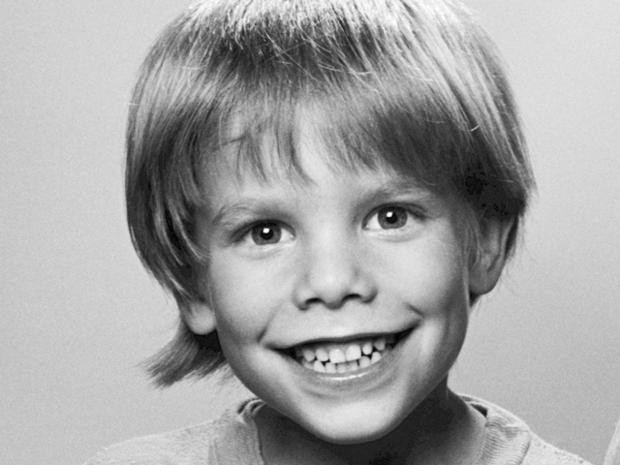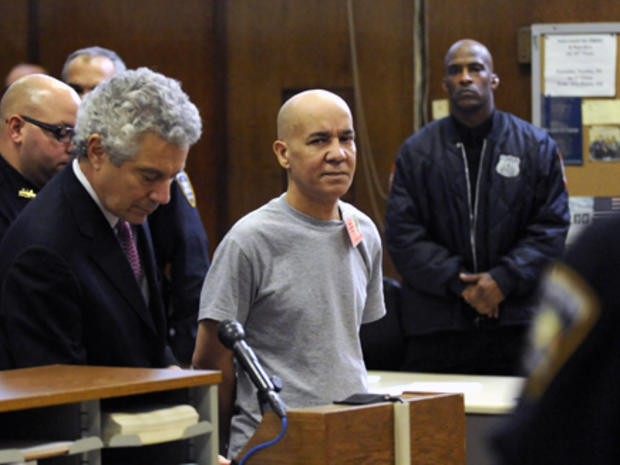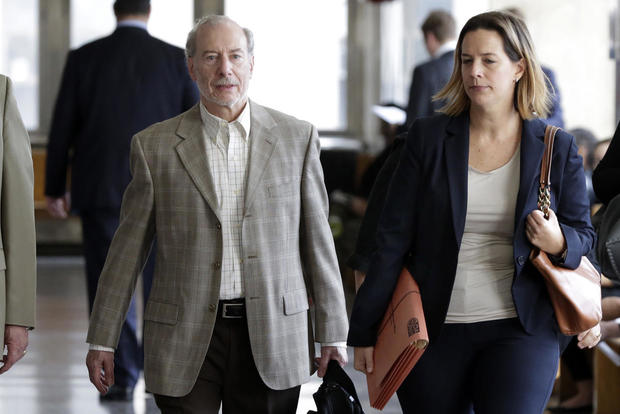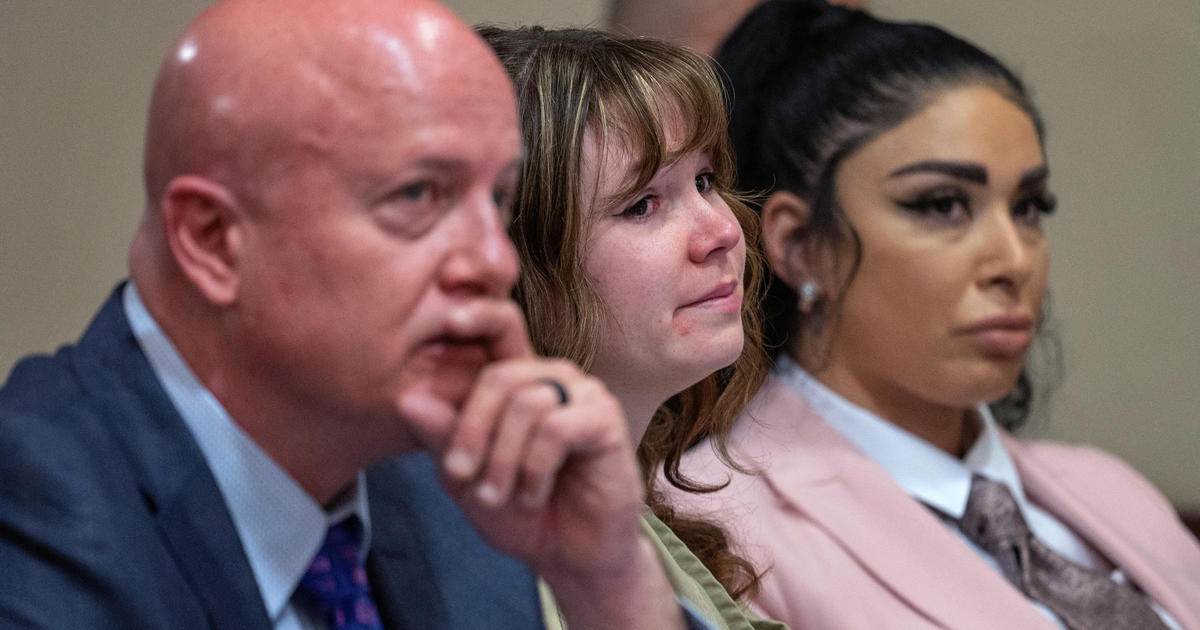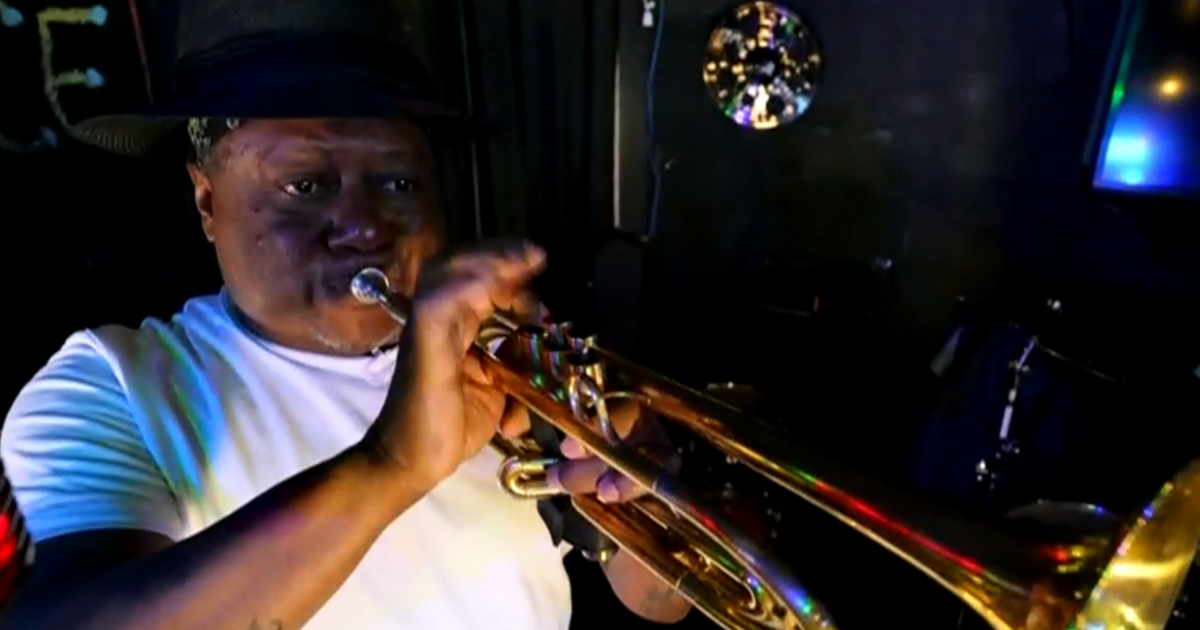Etan Patz case: Pedro Hernandez found guilty of murder in boy's 1979 disappearance
NEW YORK -- A former store clerk was convicted Tuesday of murder in one of the nation’s most haunting missing-child cases, nearly 38 years after 6-year-old Etan Patz disappeared on the way to the school bus stop.
Pedro Hernandez showed no reaction as jurors delivered their verdict. Another jury had deadlocked following 18 days of deliberation in 2015, leading to a retrial that spanned more than three months. Hernandez, who once worked in a convenience store in Etan’s neighborhood, had confessed, but his lawyers said his admissions were the false imaginings of a mentally ill man.
This time, the jury deliberated over nine days before finding Hernandez, 56, guilty of murder during a kidnapping in a case that shaped both parenting and law enforcement practices in the United States.
Some of the jurors from the first trial attended the second one, and several of them wept Tuesday as the verdict was read. The slain boy’s father, Stan Patz, was being comforted by the ex-jurors and appeared to wipe tears from his eyes.
“I am truly relieved and I’ll tell you, it’s about time,” Stan Patz told reporters.
He said he didn’t expect the first jury to deadlock, but said the prosecutors’ presentation answered questions for him about his son’s disappearance.
“I needed to know what happened to my son,” Patz said. “This great prosecution team finally proved it – at least I knew it back then, regardless of the verdict, at least I know what happened.”
Patz said he had spoken on the phone briefly with his wife. He said she was crying.
In a statement, District Attorney Cyrus Vance said Etan’s case “will no longer be remembered as one of the city’s oldest and most painful unsolved crimes,” CBS New York reports.
“The disappearance of Etan Patz haunted families in New York and across the country for nearly four decades,” Vance said. “Etan’s legacy will endure through his family’s long history of advocacy on behalf of missing children. However, it is my hope that today’s verdict provides the Patz family with the closure they so desperately deserve.”
The Patz family and authorities may never know exactly what became of the boy. No trace of him has been found since the May day he vanished, on the first day he got the grown-up privilege of walking alone to the bus stop about two blocks away in the then-edgy but neighborly SoHo section of lower Manhattan.
Etan became one of the first missing children ever pictured on milk cartons, and the anniversary of his disappearance has been designated National Missing Children’s Day. His parents lent their voices to a campaign to make missing children a national cause, and it fueled laws that established a national hotline and made it easier for law enforcement agencies to share information about vanished youngsters.
And his disappearance helped tilt parenting to more protectiveness in a nation where many families had felt comfortable letting children play and roam in their neighborhoods alone.
“It’s a cautionary tale, a defining moment, a loss of innocence,” Manhattan Assistant District Attorney Joan Illuzzi said in an opening statement. “It is Etan who will forever symbolize the loss of that innocence.”
Prosecutors said after the verdict was announced Tuesday it provided some measure of justice for the Patz family.
“I just want to thank God this jury has worked so hard to a just and truthful verdict for the Patz family, who has suffered so terribly for almost four decades,” Illuzzi said.
The decades-long investigation took investigators as far as Israel, but Hernandez wasn’t a suspect until 2012, when renewed news coverage of the case prompted a brother-in-law to tell police that Hernandez had told a prayer group decades earlier that he’d killed a child in New York. Authorities would later learn that he’d made similar, if not entirely consistent, remarks to a friend and his ex-wife in the early years after Etan vanished.
After police finally came to Hernandez’ Maple Shade, New Jersey, door, he confessed, saying he’d offered Etan a soda to get him into the store basement, choked him, put him in a box — still alive, he said — and left the box with a pile of curbside trash.
“Something just took over me,” Hernandez said in one of a series of recorded confessions to police and prosecutors. He said he’d wanted to tell someone, “but I didn’t know how to do it. I felt so sorry.”
Prosecutors cast his confession as the chillingly believable words of a man unburdening himself, and they argued it was buttressed by the less specific admissions he’d made earlier to his relatives and acquaintances.
Defense lawyers and doctors portrayed Hernandez as man with psychological problems and intellectual limitations that made him struggle to tell reality from fantasy — and made him susceptible to confessing falsely after more than six hours of questioning before recording began. His daughter testified that he talked about seeing visions of angels and demons and once watered a dead tree branch, believing it would grow.
“Pedro Hernandez is an odd, limited and vulnerable man,” defense lawyer Harvey Fishbein said in his closing argument. “Pedro Hernandez is an innocent man.”
Prosecutors have suggested Hernandez faked or exaggerated his symptoms.
Defense lawyers also pointed to a different man who was long the prime suspect — a convicted Pennsylvania child molester who made incriminating remarks about Etan’s case in the 1990s and who had dated a woman acquainted with the Patzes. He was never charged and denies killing Etan.
Several jurors spoke to reporters, saying they overcame an initial split during the lengthy deliberations.
“There had to have been a divide for us to deliberate that long,” juror Cateryn Kiernan said. “…We approached it logically and compassionately. We were very nervous about making the wrong call.”
Another juror said the group did believe Hernandez suffered from mental illness, but said they ultimately decided he was not delusional and knew right from wrong.
Stan Patz said he was confident the second jury’s questions and requests for exhibits during the deliberations were “a positive sign they were concentrating on what I thought was the right thing.”
